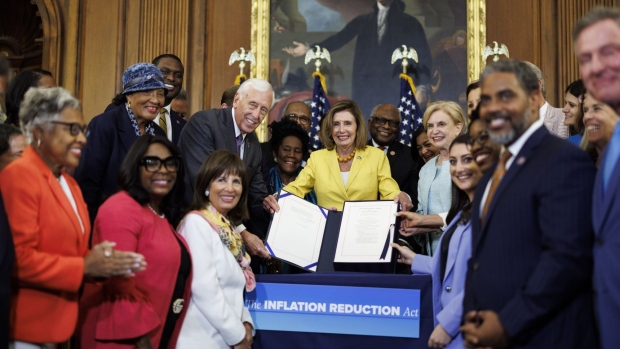
Companies are now announcing multi-billion dollar investments in U.S. clean energy and transportation seemingly every week. But what’s even more striking than the pace of the commitments is how many of them are coming from overseas.
- Late last year, Norwegian battery maker Freyr announced its first gigafactory outside of Norway would be built in Coweta County, Georgia, with an initial investment of $1.7 billion.
- In February, Swedish battery maker Northvolt said it was preparing to invest in a new manufacturing plant in the U.S., qualifying for up to $8 billion in tax credits.
- In March, German carmaker Volkswagen said it would invest at least $7.1 billion in North America and launch 25 new electric vehicles by 2030.
- Last week, Italian utility company Enel announced it would add 10,000 fast EV chargers across the U.S., as well as millions of home chargers, in a multi-billion dollar commitment.
- In Texas recently, European firms including HIS Global, OCI N.V., and Tree Energy Solutions have each announced “green gas” production plans totaling billions of dollars.
Meanwhile, LG and Hanhwa, two South Korean giants, announced multi-billion dollar investments in the U.S. last month, in battery and solar manufacturing, respectively.
Where does this flood of investments come from? You guessed it: the Inflation Reduction Act, specifically, how “simple” and “certain” the legislation is, especially after the turbulent Trump era, experts told me.
“It’s a very clear mathematical tax credit,” Alex Mitchell, a clean tech investor based in Los Angeles, told me over the phone. “For every X batteries you produce, with Y of them sourced in the U.S. or its trade allies, you get Z in tax dollar credit. It’s fairly easy to look at the bill, and do a corporate P&L.”
“It’s a decision of simple economics,” Chris Baker, the head of Enel X Way, the U.S. subsidiary of Enel, confirmed. “Enel and large incumbents in Europe are not stupid. They’ve been looking at the market for a long time. But they were waiting for the green light from policymakers.”
Still, it’s intriguing that so many investments come from outside of the U.S. According to Mitchell and Baker, that’s because European (and Asian) companies are more comfortable with two crucial aspects of clean tech investing:
First, you need a long-term investment horizon. “If you think of the European giants in particular, they take a long-term view, and therefore they’re sensitive to probabilities and certainties,” Baker said, referring to the (partially state-controlled) shareholder base in many of these firms.
Second, you need to be at ease with public-private cooperation. “U.S. companies have frankly never understood how to partner with U.S. government,” said Mitchell, who worked for PSA and Toyota, said. “U.S. companies go where there is as little government involvement as possible.”
European companies, he said, “are more public sector reliant or dependent.”
More news below….
Source: finance.yahoo.com



